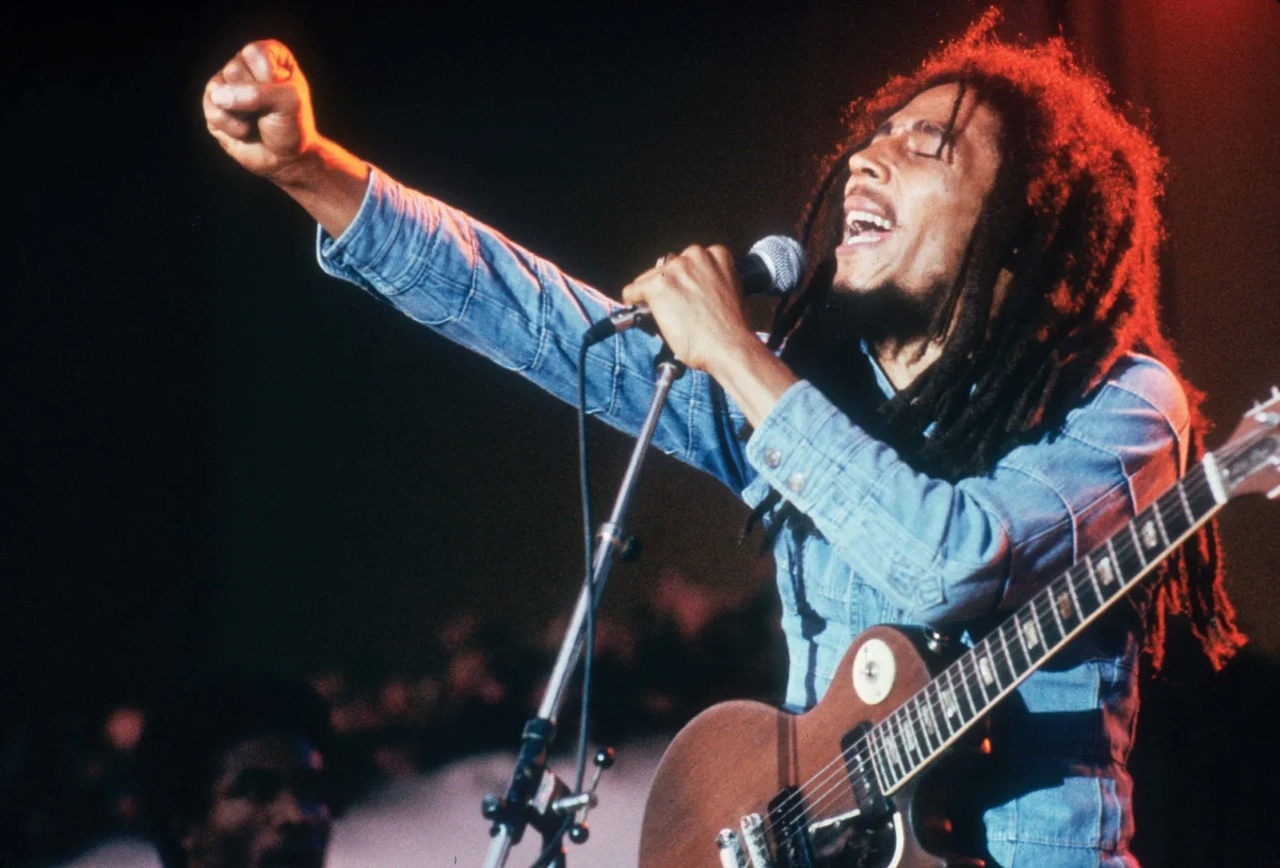The Lion in Winter
By the late 1970s, Bob Marley had already become more than a musician. He was a prophet of reggae, a symbol of unity, and a messenger of peace whose voice carried far beyond Jamaica. From Catch a Fire to Exodus, his songs had become global hymns. Yet by 1980, Marley’s health was rapidly failing. He had been diagnosed with melanoma in his toe in 1977, but refused amputation, fearing it would end his ability to perform and compromise his Rastafarian beliefs.
By September 1980, Marley was visibly weak. And yet, the fire inside him burned as brightly as ever. His North American tour was meant to be a celebration of Uprising, his final studio album. Instead, it became a farewell he himself didn’t plan.

September 23, 1980 – Stanley Theater, Pittsburgh
The Stanley Theater in Pittsburgh was a modest venue compared to the stadiums Marley had filled worldwide. That night, the audience didn’t know they were about to witness history. To them, it was another stop on the Uprising Tour. To Marley, it was unknowingly the last time he would stand on stage.
Despite his deteriorating health, Marley walked out to thunderous applause, his dreadlocks swaying, his guitar slung across his chest. The band—the legendary Wailers—were ready to carry him, but Marley gave everything he had left.
The Setlist – A Testament to His Journey
The show included classics that had defined Marley’s career and reggae itself:
-
“Natural Mystic”
-
“Positive Vibration”
-
“Burnin’ and Lootin’”
-
“Them Belly Full (But We Hungry)”
-
“Could You Be Loved”
-
“Is This Love”
-
“Jammin’”
-
“Exodus”
-
“Redemption Song”
Each song was more than performance—it was testimony. When Marley sang “Exodus,” it sounded less like a political anthem and more like a personal prayer, a journey he knew he might soon take. And when he reached “Redemption Song,” his acoustic ballad of freedom and mortality, the words “Emancipate yourselves from mental slavery, none but ourselves can free our minds” carried an almost prophetic weight.
The Strain and the Spirit
Friends and bandmates later recalled Marley was in great pain during the show. His body was weak, but his will was indestructible. At times, he leaned on his bandmates for support. Yet when the music started, he transformed—his voice raw, urgent, transcendent.
It was as if Marley knew this might be his last chance to deliver his message to the world. He poured every ounce of strength into his voice, his guitar, his presence. The audience, though unaware of the gravity of the night, felt something unforgettable—an energy that was both joyous and bittersweet.
After the Show – The Collapse
The morning after the Pittsburgh concert, Marley collapsed while jogging in New York’s Central Park. His condition forced him to cancel the rest of the tour. Doctors soon confirmed the cancer had spread to his brain, lungs, and liver.
He sought treatment in Germany under Dr. Josef Issels, enduring months of experimental therapies. But it was too late. On May 11, 1981, Bob Marley passed away at just 36 years old.
Legacy of the Pittsburgh Concert
The Pittsburgh performance lives on as a symbol of Marley’s courage and devotion. It wasn’t recorded professionally, but bootlegs have circulated, keeping the memory alive. Fans who were there speak of a night charged with something beyond music—a spiritual gathering, a farewell disguised as a celebration.
That concert crystallized Marley’s essence: even in the face of death, he chose to sing. He chose to inspire. He chose to live out his mission until the very last note.
A Message Beyond Time
Looking back, Marley’s final concert feels like a culmination of everything he stood for. His life had been dedicated to spreading love, unity, and resistance through music. On that Pittsburgh stage, he showed that true greatness isn’t measured by physical strength, but by the ability to rise above suffering and keep sharing your light.
For many, Bob Marley’s Pittsburgh concert wasn’t an ending—it was a passage. His music didn’t stop with his death; it only grew larger, continuing to unite generations across cultures, religions, and nations.
Why It Still Matters
In 1980, nobody in the theater could have imagined Marley’s voice would fall silent within a year. Yet more than four decades later, his words are still sung in protests, celebrations, and quiet moments of reflection.
The Pittsburgh concert remains a reminder: we don’t always know when our last chance will come to share our truth, to love, to create. Marley used his last chance to give the world one final gift.